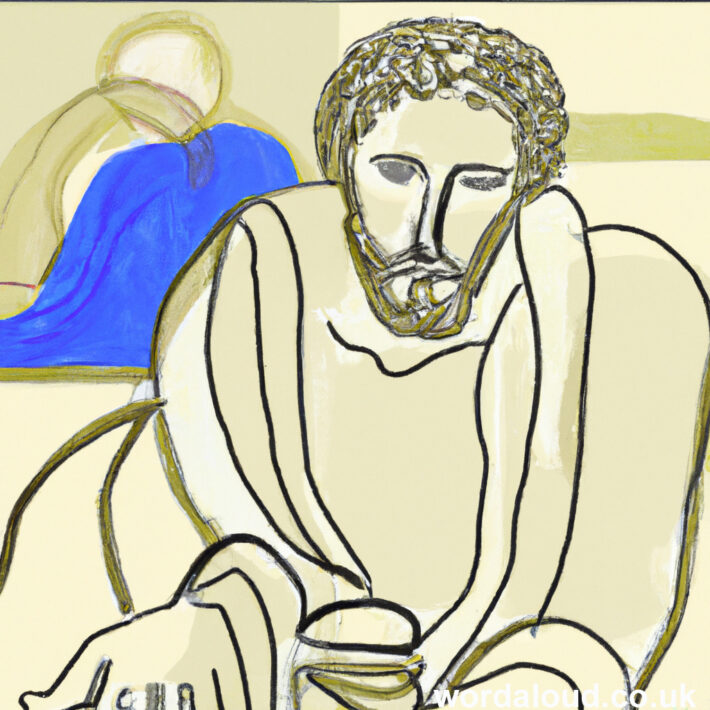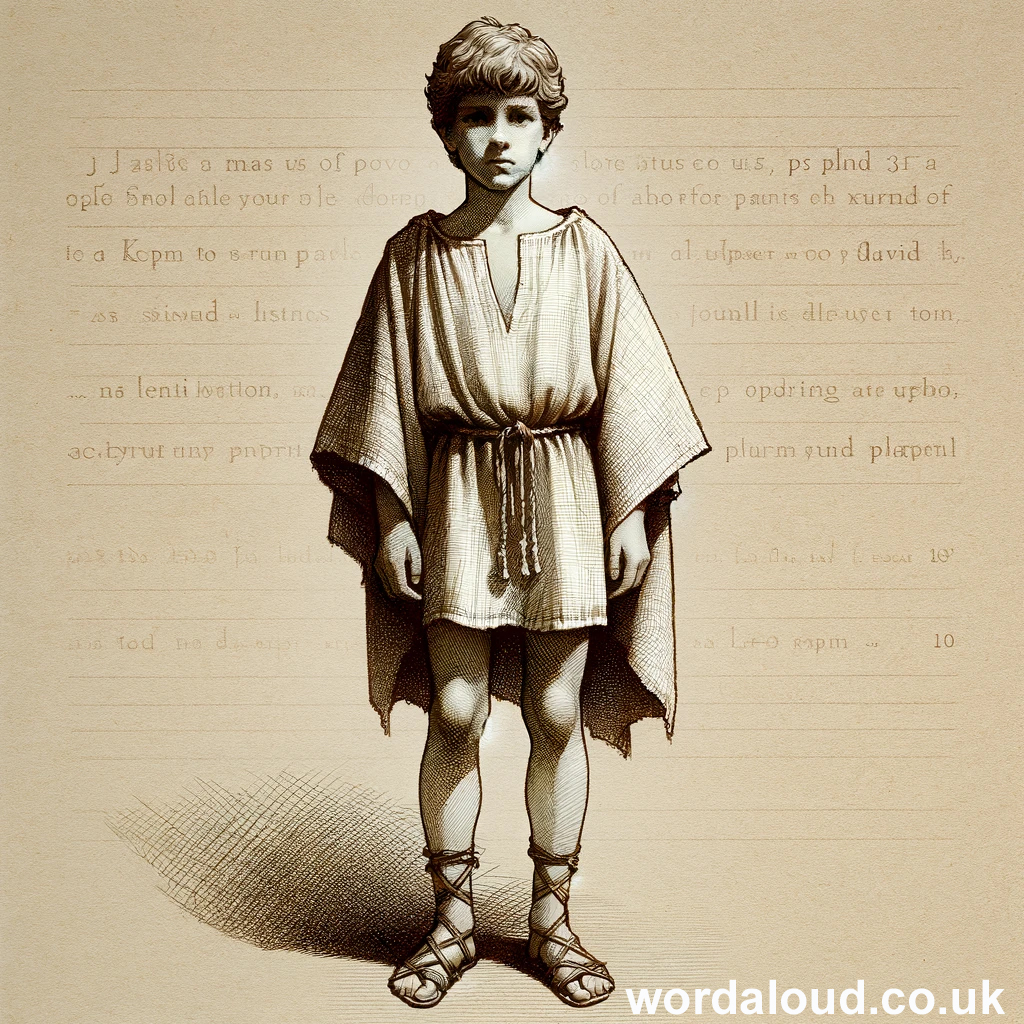Christian Art | Prayer With Jesus | The Psalms | King James Audio Bible
Psalm 6 | King James Audio Bible
YouTube: Psalm 6 KJV | King James Audio Bible | Word Aloud
Psalm 6 depicts the psalmist in personal conversation with God, expressing pain and requesting assistance.
We might imagine a moment when we’re feeling sad and afraid, as at our most abject, and when we are sufficiently brave to have a conversation with a friend we trust. The psalmist admits his inadequacy; he talks to God about how much he’s hurting and hopes for relief.
At the beginning, the psalmist asks God not to be angry but to understand his troubles. He’s feeling weak, and he acknowledges weakness, and asks God for healing.
Throughout the psalm, the psalmist’s emotions are evident. He’s troubled and tired, wondering how long his suffering will continue. There is, crucially, an entire emotional as intellectual self-revelation in prayer and openness to God. There is honesty – honesty in prayer absolute.
The psalmist asks God to rescue him and save him because of God’s kindness. Almost, and so humanly, the psalmist offers a bargain with God, suggesting the thought that once he’s gone, he won’t be able to thank and praise God anymore.
The psalmist tells God that his nights are filled with tears. His bed is soaked with tears of sadness.
His eyes are tired from crying, he is emotionally exhausted, and he feels worn out because of enemies who are causing him such pain.
Through prayer, things start to change. With prayer, the psalmist becomes more sure of himself. He says that God has heard his cries and will listen to his prayers.
Towards the end, he wishes for his enemies to feel ashamed and to experience the discomfort they’ve caused – in a sense praying for his enemies’ self-recognition of themselves before God.
The psalmist turns to God for comfort, and his prayers are heard.

Psalm 6 | King James Audio Bible KJV
O Lord, rebuke me not in thine anger, neither chasten me in thy hot displeasure.
Have mercy upon me, O Lord; for I am weak:
O Lord, heal me; for my bones are vexed.
My soul is also sore vexed: but thou, O Lord, how long?
Return, O Lord, deliver my soul: oh save me for thy mercies’ sake.
For in death there is no remembrance of thee: in the grave who shall give thee thanks?
I am weary with my groaning;
all the night make I my bed to swim; I water my couch with my tears.
Mine eye is consumed because of grief; it waxeth old because of all mine enemies.
Depart from me, all ye workers of iniquity; for the Lord hath heard the voice of my weeping.
The Lord hath heard my supplication; the Lord will receive my prayer.
Let all mine enemies be ashamed and sore vexed: let them return and be ashamed suddenly.
Key Themes Of The Psalm For Reflection | Love Revealed
- Personal Suffering: The psalmist begins by expressing his deep distress and suffering, providing a glimpse into his emotional turmoil.
- Seeking God’s Mercy: Throughout the psalm, the psalmist asks for God’s mercy and healing, acknowledging his own weakness and vulnerability.
- Vulnerability and Exhaustion: The psalmist’s emotions range from feeling weak and exhausted to questioning the duration of his suffering.
- Desire for Divine Intervention: The psalmist implores God to save him and deliver his soul, seeking God’s intervention to bring relief.
- Mortality and Remembrance: The psalmist reflects on the transient nature of life and the importance of offering thanks to God while alive.
- Intimate Conversations with God: The psalm captures an intimate dialogue between the psalmist and God, revealing personal struggles and petitions.
- Tears and Grief: The psalmist vividly describes his tears and the heaviness of his grief, illustrating the depth of his emotional pain.
- Divine Response and Confidence: The psalmist gains confidence in God’s response, believing that God hears his cries and supplications.
- Transformation and Resolution: The psalmist shifts from expressing distress to asserting trust in God’s reception of his prayers.
- Justice for Enemies: The psalmist concludes by asking for his enemies to be ashamed and experience discomfort, seeking a sense of justice.
- Spiritual Trust: Psalm 6 portrays a journey of vulnerability, seeking, and finding solace in a close relationship with God amidst life’s challenges.








